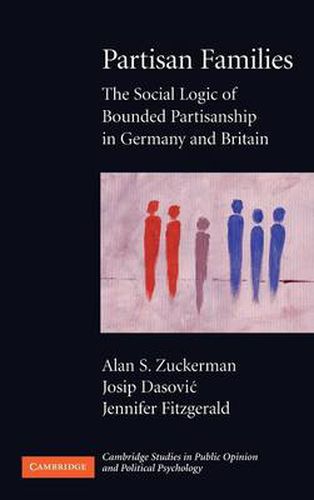Readings Newsletter
Become a Readings Member to make your shopping experience even easier.
Sign in or sign up for free!
You’re not far away from qualifying for FREE standard shipping within Australia
You’ve qualified for FREE standard shipping within Australia
The cart is loading…






People decide about political parties by taking into account the preferences, values, expectations, and perceptions of their family, friends, colleagues, and neighbours. As most people live with others, members of their households influence each other’s political decisions. How and what they think about politics and what they do are the outcomes of social processes. Applying varied statistical models to data from extensive German and British household surveys, this book shows that wives and husbands influence each other; young adults influence their parents, especially their mothers. Wives and mothers sit at the centre of households: their partisanship influences the partisanship of everyone else, and the others affect them. Politics in households interacts with competition among the political parties to sustain bounded partisanship. People ignore one of the major parties and vary their preference of its major rival over time. Election campaigns reinforce these choices.
$9.00 standard shipping within Australia
FREE standard shipping within Australia for orders over $100.00
Express & International shipping calculated at checkout
Stock availability can be subject to change without notice. We recommend calling the shop or contacting our online team to check availability of low stock items. Please see our Shopping Online page for more details.
People decide about political parties by taking into account the preferences, values, expectations, and perceptions of their family, friends, colleagues, and neighbours. As most people live with others, members of their households influence each other’s political decisions. How and what they think about politics and what they do are the outcomes of social processes. Applying varied statistical models to data from extensive German and British household surveys, this book shows that wives and husbands influence each other; young adults influence their parents, especially their mothers. Wives and mothers sit at the centre of households: their partisanship influences the partisanship of everyone else, and the others affect them. Politics in households interacts with competition among the political parties to sustain bounded partisanship. People ignore one of the major parties and vary their preference of its major rival over time. Election campaigns reinforce these choices.